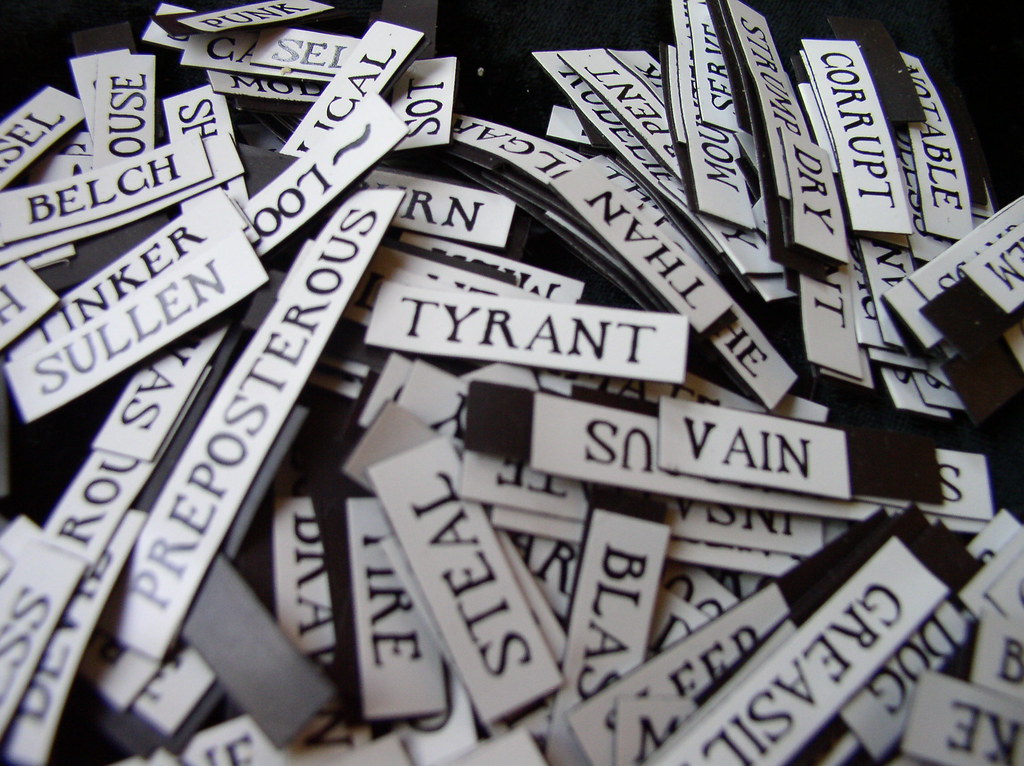
The Ultimate Guide to Understanding British Insults
The British have turned the art of the insult into a cultural institution. From cutting sarcasm to elaborate put-downs, British insults range from the mild and affectionate to the genuinely offensive. Understanding this complex vocabulary is essential for anyone hoping to navigate British culture, whether you’re watching British television, reading British literature, or simply trying to understand if your British friend just complimented or insulted you.
This comprehensive guide explores the rich and varied world of British insults, explaining not just what they mean, but how, when, and why they’re used. Because in Britain, context is everything, and the same word can be either devastating or endearing depending on tone, relationship, and situation.
The British Approach to Insults: Cultural Context
Before diving into specific terms, it’s important to understand how British insult culture differs from American:
Affectionate Insults Are Common British friends frequently insult each other as a sign of affection and camaraderie. “You absolute wanker” between mates is friendly banter. The same phrase to a stranger is genuinely hostile. Americans often find this confusing.
Understatement and Irony The British excel at devastating insults delivered with impeccable politeness. “How interesting” can be the ultimate put-down. “Bless your heart” has nothing on British passive-aggression.
Class Consciousness Many British insults reference social class, education, and sophistication (or lack thereof). These class-based insults carry weight in ways Americans might not immediately grasp.
Regional Pride Insults often target regional stereotypes—Northerners call Southerners soft, Southerners call Northerners uncouth, everyone has opinions about the Scots, Welsh, and Irish.
Swearing Is Different British swearing follows different rules than American swearing. Some words considered extremely offensive in America are casual in Britain, and vice versa.
The Severity Scale: From Mild to Nuclear
British insults exist on a spectrum from playful teasing to genuinely offensive. Here’s how to gauge severity:
Tier 1: Mild/Playful (Generally Acceptable Among Friends)
Silly/Daft Meaning: Foolish or not thinking clearly Usage: “Don’t be daft” or “You silly sod” Context: Very mild, often affectionate
Muppet Meaning: Idiot, fool (from the Muppets TV show) Usage: “You complete muppet” Context: Playful, rarely genuinely offensive
Wally Meaning: Fool, idiot Usage: “What a wally” Context: Old-fashioned, quite mild
Pillock Meaning: Stupid person, idiot Usage: “You pillock!” Context: Stronger than “silly” but still relatively mild
Numpty Meaning: Idiot, fool (Scottish origin) Usage: “He’s a right numpty” Context: Affectionate to mildly insulting
Plonker Meaning: Idiot, fool (made famous by “Only Fools and Horses”) Usage: “You plonker!” Context: Usually playful, rarely serious
Doughnut Meaning: Idiot, fool Usage: “You absolute doughnut” Context: Very mild, often humorous
Div Meaning: Idiot, stupid person Usage: “What a div” Context: Mild, common among younger people
Tier 2: Moderate Insults (Depends Heavily on Context)
Tosser Meaning: Literally someone who masturbates, but used to mean jerk or idiot Usage: “He’s such a tosser” Context: Moderately offensive, common in casual speech
Wanker Meaning: Literally someone who masturbates, means idiot or contemptible person Usage: “You wanker” or “What a wanker” Context: Can be friendly between mates or genuinely insulting to others Note: Much more casual in Britain than “jerk off” would be in America
Knob/Nob Meaning: Penis, but used to mean idiot or unpleasant person Usage: “He’s a complete knob” Context: Moderately vulgar, quite common
Bell-end Meaning: Glans of penis, used to mean idiot or contemptible person Usage: “You bell-end” Context: Vulgar but very common, especially among younger Brits
Prick Meaning: Penis, but means unpleasant or contemptible person Usage: “Don’t be such a prick” Context: Fairly harsh, definitely insulting
Git Meaning: Unpleasant, foolish, or contemptible person Usage: “You miserable git” or “Silly git” Context: Quite British, can be affectionate or genuine insult
Berk Meaning: Fool, idiot (from Cockney rhyming slang “Berkeley Hunt”) Usage: “You berk” Context: Sounds mild but has vulgar origins most people don’t know
Minger/Munter Meaning: Ugly person Usage: “She’s a minger” Context: Mean-spirited, insulting appearance
Chav Meaning: Working-class person with particular fashion/cultural markers, considered trashy Usage: “He’s such a chav” Context: Classist, derogatory, quite offensive
Scrubber Meaning: Promiscuous woman, low-class woman Usage: “She’s a scrubber” Context: Sexist, derogatory, old-fashioned but still used
Slag Meaning: Promiscuous person, usually woman Usage: “She’s a slag” Context: Quite harsh, gendered insult
Slapper Meaning: Promiscuous woman Usage: “Dressed like a slapper” Context: Sexist, derogatory
Tart Meaning: Promiscuous woman Usage: “She’s a right tart” Context: Derogatory but somewhat old-fashioned
Scrote Meaning: Worthless person (from scrotum) Usage: “Little scrote” Context: Crude, dismissive
Gobshite Meaning: Idiot who talks nonsense (Irish origin but used in Britain) Usage: “He’s a gobshite” Context: More offensive than simple “idiot”
Tier 3: Strong Insults (Genuinely Offensive in Most Contexts)
Bastard Meaning: Unpleasant person, difficult person Usage: “He’s a right bastard” Context: Can be affectionate between friends (“You lucky bastard”) or genuinely insulting Note: Not about illegitimate birth in modern usage
Arsehole/Asshole Meaning: Very unpleasant, contemptible person Usage: “Complete arsehole” Context: Definitely insulting, quite harsh
Twat Meaning: Vagina, but means idiot or contemptible person Usage: “What a twat” Context: Quite offensive, vulgar
Cock Meaning: Penis, means idiot or unpleasant person Usage: “He’s a cock” Context: Definitely insulting
Dickhead Meaning: Stupid or contemptible person Usage: “You dickhead” Context: Harsh, definitely insulting
Wazzock Meaning: Stupid or annoying person (Northern English) Usage: “You wazzock” Context: Sounds funny but genuinely insulting
Bawbag Meaning: Scrotum, means contemptible person (Scottish) Usage: “Ya bawbag” Context: Vulgar, Scottish specialty
Fuckwit Meaning: Extremely stupid person Usage: “Absolute fuckwit” Context: Very harsh
Prat Meaning: Incompetent or stupid person Usage: “You prat” Context: Fairly strong insult
Muppet/Absolute Muppet Meaning: When “absolute” is added, it becomes more insulting Usage: “You absolute muppet” Context: The intensifier changes the severity
Bellend Meaning: Idiot, fool (anatomical reference) Usage: “Complete bellend” Context: Crude, commonly used
Tosspot Meaning: Idiot, useless person Usage: “He’s a tosspot” Context: Old-fashioned but insulting
Tier 4: Nuclear Options (Extremely Offensive)
Cunt Meaning: The most offensive word in British English when used as insult Usage: “He’s a cunt” Context: Extremely offensive, but paradoxically can be affectionate among close Australian/British friends in some circles Note: Much more offensive in Britain than in Australia; in America it’s considered one of the worst words
Fuck off Meaning: Go away, expressing strong rejection Usage: “Fuck off!” or “Fuck right off” Context: Very aggressive, ending conversations
Piss off Meaning: Go away, leave me alone Usage: “Piss off!” or “Oh piss off” Context: Definitely rude but less severe than “fuck off”
Bugger off Meaning: Go away Usage: “Bugger off” Context: Still rude but milder than the above
Category-Specific Insults
Intelligence-Based Insults
British culture has numerous ways to call someone stupid:
Thick “Thick as two short planks” – Very stupid “Thick as mince” – Extremely stupid (Scottish) “A bit thick” – Not very bright
Dim “Dim-witted” – Stupid “He’s a bit dim” – Not intelligent
Simple “He’s simple” – Lacking intelligence or sophistication
Not the sharpest tool in the shed British version of American sayings about intelligence
Hasn’t got both oars in the water Missing something mentally
Lights are on but nobody’s home Appears functional but lacks intelligence
Couldn’t organize a piss-up in a brewery Completely incompetent (a piss-up is a drinking session)
Daft as a brush Very silly or stupid
Soft in the head Not thinking clearly, foolish
Barmy/Barking/Barking mad Crazy, insane
Mental Crazy (can be affectionate: “You’re mental, you are”)
Mad as a box of frogs Completely crazy
Lost the plot Gone crazy, lost sense of reality
Away with the fairies Not paying attention, in a dream world
Not all there Lacking intelligence or sanity
Appearance-Based Insults
Minger/Munter Ugly person
Munter Very unattractive person
Rough Unattractive, unwell-looking “She looks rough”
Rough as a badger’s arse Extremely unattractive or hungover
Face like a bulldog chewing a wasp Very ugly or unpleasant expression
Face like a slapped arse Miserable or unattractive expression
Butter face “Everything looks good but her face”
Built like a brick shithouse Heavily built (can be insult or compliment depending on context)
Gormless Stupid-looking, vacant expression
Grotty Unpleasant looking, dirty, unattractive
Manky Dirty, disgusting, poor quality
Mingin’ Disgusting, unattractive (Scottish/Northern)
Boggin’ Disgusting, revolting (Northern)
Character-Based Insults
Jobsworth Someone who follows rules inflexibly and officiously “He’s a right jobsworth” Origin: “It’s more than my job’s worth”
Busybody Someone who interferes in others’ affairs
Nosy parker Overly curious about others’ business
Curtain twitcher Nosy neighbor who watches others
Grass Informer, snitch, someone who tells on others
Snitch Informer (more American but used in Britain)
Nark Police informer or annoying person
Snide Deceptive, underhanded, or fake
Sly Sneaky, untrustworthy
Two-faced Hypocritical, saying different things to different people
Snake Untrustworthy, backstabbing person
Slippery Untrustworthy, evasive
Wet Weak, feeble, lacking backbone “Don’t be wet”
Soft Weak, easily manipulated “You’re too soft”
Wimp Weak, cowardly person
Jessie Weak, effeminate man (offensive, outdated)
Big girl’s blouse Weak, wimpy man (offensive, gendered)
Pansy Weak person (offensive, homophobic implications)
Nancy/Nancy boy Effeminate man (very offensive, homophobic)
Ponce Effeminate man or someone who lives off others
Tight Stingy, unwilling to spend money “Tight-fisted”
Tight-arse Very stingy person
Skinflint Extremely miserly person
Mean Stingy (British usage differs from American)
Miser Someone who hoards money
Cheapskate Stingy person
Scrooge Miser (from Dickens character)
Greedy guts Greedy person, especially about food
Selfish git Self-centered person
Egotist Self-absorbed person
Up themselves Arrogant, full of themselves “He’s so far up himself”
Full of themselves Arrogant, conceited
Stuck-up Snobbish, thinking oneself superior
Snob Someone who looks down on others
Toff Upper-class person (can be neutral or insulting depending on context)
Posh twat Wealthy person, used insultingly
Pompous Self-important, pretentious
Pretentious Trying to appear more important or cultured than one is
Poser Someone who pretends to be something they’re not
Try-hard Someone who tries too hard to fit in or be cool
Show-off Someone who constantly seeks attention
Attention seeker Someone desperate for attention
Drama queen Someone who overreacts to everything
Windbag Someone who talks too much without saying anything meaningful
Blowhard Boastful person who talks too much
Bighead Arrogant person
Big-headed Conceited, arrogant
Swollen-headed Excessively proud
Work and Competence Insults
Useless Incompetent, worthless “Absolutely useless”
Waste of space Completely useless person
Dead weight Burden, useless person
Lazy sod Lazy person
Idle Lazy, not working
Workshy Avoiding work
Skiver Someone who avoids work or responsibility
Slacker Lazy, unproductive person
Layabout Lazy person who does nothing
Dosser Lazy person, homeless person
Bum Lazy person (different from American “homeless person”)
Good-for-nothing Worthless, useless person
Deadbeat Irresponsible person, especially regarding finances
Sponger Someone who lives off others
Scrounger Someone who gets things without paying
Freeloader Someone who takes advantage of others’ generosity
Parasite Person who lives off others
Leech Person who drains resources from others
Hanger-on Person who associates with others for benefit
Social Behavior Insults
Cheeky Impertinent, disrespectful (can be playful) “Cheeky git” or “Cheeky bastard”
Mouthy Talks back, disrespectful
Lippy Disrespectful, talking back
Cocky Overconfident, arrogant
Brash Loud, aggressive, lacking subtlety
Obnoxious Extremely unpleasant, annoying
Oik Obnoxious, uncultured person
Yob Rowdy, antisocial young man
Yobbo Loutish, badly behaved person
Lout Rough, aggressive person
Hooligan Violent, destructive person
Thug Violent criminal
Ned Scottish equivalent of chav, antisocial youth
Scally Liverpool equivalent of chav
Pikey Offensive term for travellers or working-class people
Ruffian Violent, lawless person
Scoundrel Dishonest, unscrupulous person
Rogue Dishonest person (can be affectionate: “lovable rogue”)
Villain Criminal, bad person
Wrong’un Bad person, someone who’s “wrong”
Bad egg Untrustworthy or immoral person
Dodgy character Suspicious, untrustworthy person
Creep Unpleasant person, often with sexual connotations
Perv/Pervert Sexual deviant, creepy person
Dirty old man Older man with inappropriate sexual interest
Lech Someone who makes unwanted sexual advances
Sleazebag Morally repugnant person
Slimeball Repulsive, unethical person
Drinking and Partying Insults
Pisshead Heavy drinker, alcoholic
Alkie/Alky Alcoholic
Wino Alcoholic, especially someone who drinks cheap wine
Lush Heavy drinker (older term)
Soak Heavy drinker
Boozer Heavy drinker or pub
Drunkard Alcoholic
Sot Habitual drunkard (old-fashioned)
Lightweight Someone who can’t handle alcohol “What a lightweight”
Can’t handle their drink Gets drunk easily
Age and Generation Insults
Old codger Old man (slightly affectionate or insulting)
Old git Grumpy old person
Old bag Old woman (very offensive)
Old bat Unpleasant old woman
Old biddy Gossipy old woman
Old fart Old person, especially boring or conservative one
Fossil Very old person
Old fogey Old-fashioned, conservative old person
Geezer Old man (can be neutral or insulting depending on context)
Coffin dodger Very old person (dark humor)
Past it Too old, no longer capable
Over the hill Too old
Decrepit Old and feeble
Sprog Child (can be affectionate or dismissive)
Brat Badly behaved child
Little shit Badly behaved child or young person
Ankle biter Small child
Rug rat Small child
Kid/Kiddo Can be patronizing when used to adults
Whippersnapper Young, inexperienced person who’s impudent
Young pup Inexperienced young person
Regional Variations and Specialties
Scottish Insults
Bawbag Scrotum, used as insult (contemptible person)
Numpty Idiot, fool (now used throughout Britain)
Eejit Idiot (also Irish)
Bampot Idiot, crazy person
Fanny Idiot (different from English usage where it means vagina)
Tube Idiot
Walloper Idiot, contemptible person
Dobber Penis, or idiot
Weapon Idiot, tool
Roaster Idiot, embarrassing person
Rocket Idiot
Clown Idiot, fool
Dafty Silly person
Ned Antisocial youth, Scottish chav
Radge Crazy person or angry person
Pure mental Completely crazy (Scottish intensifier)
Northern English Insults
Mardy Moody, sulky (East Midlands/Yorkshire) “Mardy arse”
Nesh Weak, unable to handle cold (Midlands)
Soft lad Weak person (Northern)
Daft apeth Silly person (Northern, from “halfpenny”)
Mard arse Sulky, moody person (Northern)
Wazzock Stupid person (Yorkshire)
Divvy Idiot (Liverpool)
Scally Antisocial youth (Liverpool)
Our kid Can be patronizing when not actually addressing sibling (Northern)
Nowt-headed Empty-headed, stupid (Northern)
Barmpot Foolish person (Northern)
London/Cockney Insults
Mug Fool, someone easily taken advantage of “You mug”
Melt Weak, pathetic person (modern London slang)
Wet wipe Weak person (modern London)
Waste man/Wasteman Useless person (London urban slang)
Neek Nerd or weak person (London)
Donut Idiot (London)
Muppet Fool (popularized in London)
Plonker Idiot (Cockney, from “Only Fools and Horses”)
Berk Fool (from Cockney rhyming slang)
Merchant Added to other words for emphasis: “Flash merchant” (show-off)
Welsh Insults
Twp Stupid (Welsh word used in English)
Cwtch Not an insult, but opposite—means cuddle/hug
Cont Welsh pronunciation affecting the worst British insult
Daft Common throughout Wales
Irish-Influenced British Insults
Gobshite Person who talks nonsense
Eejit Idiot
Thick Stupid (very common in Ireland and Britain)
Amadán Fool (Irish word sometimes used)
Gombeen Corrupt person
Hallion Good-for-nothing person
Bollix Irish spelling/pronunciation of bollocks
Class-Based Insults
British culture’s class consciousness produces unique insults:
Working Class → Middle/Upper Class
Posh twat Wealthy, privileged person
Toff Upper-class person
Stuck-up Snobbish
Hoity-toity Acting superior
Coffee-nosed Snobbish
Silver spoon Born into wealth (short for “born with silver spoon in mouth”)
Trust fund baby Someone living off inherited wealth
Fancy pants Someone who thinks they’re better
Too good for the likes of us Acting superior
Thinks their shit doesn’t stink Acting superior
Middle/Upper Class → Working Class
Chav Working-class person with particular style markers (very offensive)
Pikey Extremely offensive term for travellers or working-class
Common Lacking refinement or class
Rough Low-class, unrefined
Uncouth Lacking manners or refinement
Coarse Lacking refinement
Vulgar Tasteless, lacking refinement
Unrefined Lacking sophistication
Low Base, lacking class
Oik Obnoxious, uncultured person
Yob/Yobbo Loutish working-class youth
Ned/Scally/Kev Regional variations on chavs
Modern British Insults (Social Media Age)
Wasteman/Wastewoman Useless, disappointing person (urban slang)
Wet wipe Weak, pathetic person
Melt Pathetic, weak person
Wallad Idiot (London)
Neek Cross between nerd and geek, means weak person
Div Idiot (originally from “divvy”)
Muppet Still going strong
Basic Unoriginal, mainstream (adopted from American)
Karen Entitled middle-aged woman (adopted from American)
Boomer Dismissive term for older person out of touch
Gammon Middle-aged, red-faced, angry conservative (political insult)
Snowflake Overly sensitive person
Nonce Pedophile or child molester (extremely serious accusation)
Paedo Pedophile (extremely serious)
Bellend Still popular, means idiot
Absolute weapon Complete idiot (Scottish spreading to England)
Clown Idiot, fool (increasingly popular)
Joke Someone not to be taken seriously “He’s a joke”
Wastage Wasted potential, disappointing person
Intensifiers and Modifiers
British insults can be amplified or modified:
Intensifiers (Making It Worse)
Absolute “You absolute wanker” (much worse than just “wanker”)
Complete “Complete tosser”
Total “Total dickhead”
Right “Right idiot” or “Proper idiot”
Proper “Proper twat”
Utter “Utter bellend”
Pure “Pure mental” (Scottish)
Massive “Massive prick”
Giant “Giant cock”
Enormous “Enormous wanker”
Modifiers (Adding Flavor)
Little Can be patronizing: “Little shit”
Old “You old git”
Miserable “Miserable git”
Cheeky Can soften or emphasize: “Cheeky bastard”
Stupid “Stupid prick”
Lazy “Lazy git”
Fat “Fat bastard” (very offensive)
Ugly “Ugly minger”
Useless “Useless tosser”
Pathetic “Pathetic wanker”
Phrases and Combinations
Creative British Insult Phrases
“Not the sharpest knife in the drawer” Not intelligent
“Couldn’t pour water out of a boot with instructions on the heel” Very stupid
“Couldn’t organize a piss-up in a brewery” Completely incompetent
“All fur coat and no knickers” All show, no substance
“As useful as a chocolate teapot” Completely useless
“As useful as a screen door on a submarine” Useless
“About as much use as a one-legged man in an arse-kicking contest” Useless
“Thick as two short planks” Very stupid
“Thick as mince” Extremely stupid (Scottish)
“Daft as a brush” Very silly
“Mad as a box of frogs” Crazy
“Away with the fairies” Not paying attention, mentally absent
“Few sandwiches short of a picnic” Not very intelligent
“Not playing with a full deck” Missing something mentally
“Lights are on but nobody’s home” Appears functional but lacks intelligence
“Elevator doesn’t go all the way to the top” Not fully intelligent
“Sharp as a marble” Not sharp at all, stupid
“Bright as a broken bulb” Not bright, stupid
“Lost the plot” Gone crazy
“Gone round the bend” Crazy
“Completely barking” Crazy
“Nutty as a fruitcake” Crazy
“More front than Brighton” Extremely bold or cheeky (Brighton has a famous seafront)
“Face like a bulldog chewing a wasp” Ugly or angry expression
“Face like a smacked arse” Miserable, unpleasant expression
“Face for radio” Ugly (implying they should be heard, not seen)
“Butter wouldn’t melt in their mouth” Acting innocent while being cunning (sarcastic)
“Think the sun shines out of their arse” Arrogant, self-important
“Head up their own arse” Self-absorbed, arrogant
“So far up themselves they can see their tonsils” Extremely arrogant
“Couldn’t give a monkey’s” Doesn’t care at all (from “couldn’t give a monkey’s fuck”)
“Couldn’t care less” Doesn’t care (note: British say “couldn’t,” Americans often incorrectly say “could”)
“Get stuffed” Expression of rejection
“Go boil your head” Go away, expression of dismissal
“Sod off” Go away
“Piss off” Go away (ruder)
“Bugger off” Go away
“On your bike” Go away
“Jog on” Go away, leave
“Do one” Go away, leave (modern)
“Sling your hook” Go away
“Naff off” Go away (deliberately mild version)
Context Is Everything: When Insults Aren’t Really Insults
Understanding when British insults are friendly requires cultural knowledge:
Friendly Contexts
Between Close Friends:
- “You absolute wanker!” (hearing about friend’s good fortune)
- “You lucky bastard!” (congratulating friend)
- “You cheeky sod!” (playful response to teasing)
- “You pillock!” (friend did something silly)
With Family:
- “Don’t be daft” (dismissing worry)
- “You silly sod” (affectionate)
- “Soft lad” (Northern, affectionate)
Banter:
- British culture revolves around “taking the piss” (mocking playfully)
- Friends insult each other constantly
- Refusing to join in seems standoffish
- The closer the friendship, the harsher the insults can be
Genuinely Offensive Contexts
To Strangers: Almost any insult to a stranger is genuinely offensive, not banter.
Wrong Tone: Same words with anger, contempt, or genuine malice are insults, not banter.
Power Imbalances: Boss to employee, adult to child—insults aren’t friendly.
First Meetings: Don’t use insults with new acquaintances—wait for established rapport.
When Someone Says “That’s Not On”: If someone objects, it’s not banter—it’s offensive.
British vs. American Insult Differences
Words That Are Worse in Britain
Cunt: More offensive in Britain than Australia, but used more casually than in America where it’s considered one of the absolute worst words
Wanker: Common in Britain, would be shocking in America
Twat: Very common in Britain, more shocking in America
Words That Are Worse in America
Bastard: Much more casual in Britain (can be friendly: “lucky bastard”)
Bugger: Mild in Britain, stronger in America
Bloody: Once very offensive in Britain, now quite mild; Americans barely register it
Cultural Differences
British:
- More comfortable with swearing
- Insults often affectionate
- Elaborate, creative insults valued
- Indirect insults (“How interesting”)
- Class-based insults common
American:
- More direct communication
- Insults usually mean insults
- Religious/moral insults more common
- Racial insults taken very seriously
- Class supposedly doesn’t exist (but does)
When Insults Cross the Line
Even in Britain’s insult-friendly culture, some things are beyond the pale:
Always Offensive
Racist Language: Any racial slurs are completely unacceptable and illegal under hate speech laws.
Homophobic Slurs: Words like “poof,” “faggot,” “queer” (when used as insult) are hate speech.
Sexist Insults: While some gendered insults persist, increasing awareness makes them less acceptable.
Disability-Related Insults: “Retard,” “spaz,” “mong” are highly offensive.
Religious Insults: Insulting someone’s religion is considered extremely poor form.
Appearance-Based (Usually): Insulting weight, disabilities, disfigurements is generally beyond acceptable.
Context-Dependent
Slag/Slapper/Slut: These gendered insults are increasingly recognized as unacceptable.
Chav/Pikey: Class-based insults now challenged as classist and offensive.
Fat/Ugly: Appearance insults increasingly seen as bullying.
Mental/Psycho: Mental health insults increasingly problematic.
How to Respond to British Insults
If It’s Friendly Banter
Return Fire: Insult them back (approximately equal severity)
Acknowledge: “Fair point” or “You’re not wrong”
Exaggerate: “Guilty as charged” or “I wear that badge with pride”
Self-Deprecate: “Coming from you, I’ll take that as a compliment”
If It’s Actually Offensive
Call It Out: “That’s not on” or “That’s bang out of order”
Set Boundaries: “I don’t appreciate that” (very serious in British culture)
Walk Away: “I’m not having this conversation”
Report (Serious Cases): Racist, sexist, homophobic insults can be hate crimes in Britain
Regional Insult Spotting: A Guide
If you hear:
- “Bawbag,” “numpty,” “pure mental” → Scotland
- “Mardy,” “wazzock,” “soft lad” → Northern England
- “Divvy,” “scally” → Liverpool
- “Melt,” “wet wipe,” “wasteman” → London
- “Chav” → England (especially South)
- “Ned” → Scotland
- “Gobshite,” “eejit” → Ireland/Northern Ireland
- “Twp” → Wales
Compound Insults: British Creativity at Its Finest
British speakers excel at combining words to create more elaborate insults:
Two-Word Combinations
Absolute + Noun:
- Absolute wanker
- Absolute tosser
- Absolute tool
- Absolute muppet
- Absolute bellend
- Absolute weapon (Scottish)
- Absolute clown
- Absolute joke The word “absolute” intensifies any insult significantly.
Complete + Noun:
- Complete prick
- Complete dickhead
- Complete knobhead
- Complete arsehole
- Complete melt Similar intensifying effect to “absolute”
Total + Noun:
- Total tosspot
- Total waste of space
- Total gobshite
- Total numpty
Right + Noun: Very British intensifier:
- Right git
- Right bastard
- Right muppet
- Right numpty
- Right plonker Often implies the person is a thorough or exemplary version of the insult
Proper + Noun:
- Proper twat
- Proper wanker
- Proper dickhead Working-class intensifier, especially Northern/Midlands
Cheeky + Noun: Can soften or emphasize depending on tone:
- Cheeky bastard
- Cheeky git
- Cheeky sod
- Cheeky bugger
- Cheeky cow Often used with affection or playful annoyance
Silly + Noun: Generally affectionate:
- Silly sod
- Silly git
- Silly muppet
- Silly bugger
- Silly cow Usually mild, often said with fondness
Stupid + Noun: Emphasizes foolishness:
- Stupid prick
- Stupid git
- Stupid bastard
- Stupid sod More insulting than “silly”
Lazy + Noun: Targets work ethic:
- Lazy git
- Lazy sod
- Lazy bastard
- Lazy bugger
- Lazy arse
Miserable + Noun: Targets personality:
- Miserable git
- Miserable sod
- Miserable bastard
- Miserable cow
- Miserable old git
Little + Noun: Often patronizing:
- Little shit
- Little sod
- Little git
- Little bastard
- Little tosser Can be condescending regardless of actual size
Old + Noun: Age-related, often affectionate:
- Old git
- Old sod
- Old bastard
- Old bugger
- Old fart Can be friendly between people of similar age
Three-Word Combinations
Adjective + Adjective + Noun:
- Stupid lazy git
- Miserable old bastard
- Cheeky little sod
- Useless bloody idiot
- Silly old fool
Adjective + [Expletive] + Noun:
- Absolute fucking wanker (very strong)
- Complete bloody idiot
- Total fucking muppet
- Right bloody nuisance
Body Part Insults
Face-Related:
- Frog-face
- Pizza-face (acne)
- Horse-face
- Rat-face
- Moon-face (round face)
- Butter-face (everything but her face)
Head-Related:
- Blockhead (stupid)
- Fathead (stupid)
- Bonehead (stupid)
- Meathead (stupid, muscle-bound)
- Airhead (stupid)
- Pinhead (stupid, small-minded)
- Egghead (intellectual, can be insulting or neutral)
- Dickhead (general insult)
- Knobhead (general insult)
Size-Related:
- Lardarse (overweight)
- Fat bastard (very offensive)
- Porker (overweight)
- Tub of lard (overweight)
- Stick insect (very thin)
- Beanpole (very tall and thin)
- Short-arse (short person)
- Midget (very offensive)
- Shrimp (small person)
Profession and Occupation Insults
British culture has insults related to various professions and social roles:
Tradesperson Insults
Cowboy: Incompetent tradesperson or business “Cowboy builder” – shoddy workmanship “Bunch of cowboys” – unprofessional outfit
Bodger: Someone who does shoddy work “Bodge job” – poorly done work
Chancer: Someone who takes risks or tries to get away with things
Spiv: Flashy, untrustworthy businessman or black marketeer (dated but still used)
Shark: Unscrupulous businessperson “Loan shark,” “pool shark”
Con artist: Swindler, fraudster
Wide boy: Untrustworthy wheeler-dealer
Del Boy: Like Arthur Daley, references “Only Fools and Horses” character—dodgy dealer
Arthur Daley: Shifty businessman (from TV series “Minder”)
Authority Figure Insuits
Jobsworth: Petty official who enforces rules rigidly Origin: “It’s more than my job’s worth”
Busybody: Interfering person
Clipboard warrior: Petty bureaucrat
Pen pusher: Boring office worker
Suit: Corporate type, out of touch person
Bean counter: Accountant (dismissive)
Box ticker: Someone who just goes through motions
Yes man: Sycophant who agrees with authority
Arse licker: Sycophant (vulgar)
Brown-noser: Sycophant
Toady: Sycophant
Crawler: Sycophant
Creep: Sycophant (among other meanings)
Teachers pet: Student who curries favor
Suck-up: Person who ingratiates themselves
Service Industry Insults
Jobsworth: Unhelpful service worker who hides behind rules
Jobs worth: Same as above
Rude boy/girl: Disrespectful service worker
Couldn’t care less: Apathetic worker
Couldn’t organize a piss-up in a brewery: Incompetent organizer/manager
Media and Entertainment
Hack: Poor journalist or writer
Tabloid journalist: Low-quality sensationalist journalist
Talking head: TV pundit with no real expertise
Z-lister: Very minor celebrity
Has-been: Former celebrity now irrelevant
Never-was: Person who never achieved fame despite attempts
One-hit wonder: Person known for one thing only
Flash in the pan: Brief success followed by obscurity
Sell-out: Person who compromised principles for money
Situation-Specific British Insults
Driving-Related
Sunday driver: Slow, overly cautious driver
Boy racer: Young man driving recklessly
White van man: Aggressive tradesperson driver (stereotype)
Middle-lane hogger: Driver who stays in middle lane on motorway
Road hog: Selfish driver
Backseat driver: Passenger who criticizes driving
Tailgater: Driver who follows too closely
Slowcoach: Very slow person (not just driving)
Queue-Related (Very Important in Britain!)
Queue jumper: Person who doesn’t wait their turn (very serious in Britain!)
Pushy: Someone who doesn’t respect queues
No manners: General complaint about queue-jumper
Barge in: To push into queue rudely
Think they own the place: Someone acting entitled in queue
Pub and Social Situations
Lightweight: Can’t handle alcohol
Sloppy drunk: Drunk and messy
Pisshead: Heavy drinker
Getting lairy: Becoming aggressive when drunk
Mouthy when drunk: Talks too much/aggressively when drinking
Sponger: Person who never buys rounds
Tight git: Won’t buy drinks
Round dodger: Avoids buying rounds
Sneak: Person who leaves before their round
Bogart: Hogging something (often a joint)
Greedy guts: Eating/drinking too much
Football (Soccer) Related
Armchair supporter: Supporter who never attends matches
Glory hunter: Supports successful team only
Plastic fan: Fake, uncommitted supporter
Hooligan: Violent football fan
Yob: Rowdy, antisocial fan
Mug: Gullible supporter
Bottler: Coward, team that loses under pressure
Diving: Player who fakes fouls (not exactly insult but critical)
Dating and Relationships
Player: Person who dates multiple people deceptively
Love rat: Cheater (tabloid favorite)
Two-timer: Person conducting two relationships
Slag: Promiscuous person (usually woman, derogatory)
Slapper: Promiscuous woman (derogatory)
Dog: Unattractive person
Butterface: Body good, face bad
Swamp donkey: Very unattractive person (harsh)
Five-pinter: Person who looks attractive only after drinking five pints
Moose: Unattractive person
Munter: Unattractive person
Stage five clinger: Overly attached person
Bunny boiler: Dangerously obsessive person (from “Fatal Attraction”)
Psycho: Crazy romantic partner
Control freak: Domineering partner
Gold digger: Person interested only in money
Trophy wife/husband: Attractive spouse chosen for looks
Toy boy: Younger male partner (patronizing)
Cradle snatcher: Person dating someone much younger
Old enough to be their father/mother: Age-inappropriate relationship comment
Work-Related Situations
Clock watcher: Someone who does minimum work
Shirker: Work avoider
Skiver: Someone who avoids work
Slacker: Lazy worker
Time waster: Unproductive person
Dead weight: Useless team member
Passenger: Person not contributing
Yes man: Agrees with everything boss says
Brown-noser: Sucks up to boss
Backstabber: Betrays colleagues
Gossip: Spreads rumors
Stirrer: Creates trouble
Pot stirrer: Causes problems
Troublemaker: Creates difficulties
Loose cannon: Unpredictable, risky person
Maverick: Non-conformist (can be positive or negative)
One-man band: Won’t delegate or work with team
Control freak: Micromanager
Dragon: Fierce, unpleasant manager (often woman, sexist)
Slave driver: Demanding manager
Tyrant: Oppressive manager
Age-Appropriate Insults: What Kids Say
British children and teenagers use somewhat different insults:
Primary School Age
Meanie: Mean person
Meanie-head: Mean person (child-friendly)
Poo-poo head: Childish insult
Wee-wee head: Childish insult
Stupid-head: Basic insult
Dummy: Stupid person
Baby: Immature person
Cry-baby: Someone who cries easily
Tattletale/Telltale: Informer
Snitch: Informer
Grass: Informer (British specific)
Teacher’s pet: Student who curries favor
Swot: Student who studies too much
Nerd: Socially awkward smart student
Geek: Similar to nerd
Dweeb: Awkward person
Dork: Foolish person
Loser: Unsuccessful person
Lame: Uncool
Saddo: Pathetic person
Billy no-mates: Person with no friends
Smelly: Unhygienic person
Teenage Insults
Neek: Nerd/geek combination (London)
Wasteman: Useless person (urban)
Wet wipe: Weak person (modern)
Melt: Pathetic person
Basic: Unoriginal person
Tryhard: Someone trying too hard
Cringe: Embarrassing person
Extra: Over-the-top person
Salty: Bitter, upset person
Pressed: Upset, bothered
Shook: Upset, rattled
Salty: Bitter about something
Butthurt: Overly sensitive
Triggered: Easily offended (often used mockingly)
Snowflake: Overly sensitive person
Karen: Entitled middle-aged woman (from American)
Kevin: British male equivalent of Karen
Boomer: Older person out of touch
Fossil: Very old person
Dinosaur: Outdated person
Relic: Old-fashioned person
Historical and Literary British Insults
Some insults have fascinating histories:
Shakespeare-Era Insults Still in Use
Villain: From Shakespeare, means evil person
Scoundrel: Dishonest person (old-fashioned)
Rogue: Dishonest person (can be affectionate: “lovable rogue”)
Knave: Dishonest man (archaic but understood)
Cur: Contemptible person (literally mongrel dog)
Blackguard: Scoundrel (pronounced “blaggard”)
Rascal: Mischievous person (often affectionate now)
Rapscallion: Mischievous person (playful)
Scalawag: Rascal (American but used in Britain)
Ne’er-do-well: Worthless person
Good-for-nothing: Worthless person
Wastrel: Wasteful, worthless person
Victorian-Era Insults
Bounder: Untrustworthy man
Cad: Man who behaves dishonorably
Scallywag: Rascal
Hooligan: Rowdy troublemaker
Rapscallion: Rogue
Vagabond: Wandering criminal
Ruffian: Violent person
Charlatan: Fraud, faker
Mountebank: Fraud, faker
Quack: Fake doctor or expert
Humbug: Fraud, nonsense
Poppycock: Nonsense
Balderdash: Nonsense
Codswallop: Nonsense
Rot: Nonsense
Tosh: Nonsense
Rubbish: Nonsense (still very common)
Piffle: Nonsense
Twaddle: Nonsense
Drivel: Nonsense
Claptrap: Nonsense
Dickens-Influenced Insults
Scrooge: Miser
Gradgrind: Harsh, facts-obsessed person
Uriah Heep: Insincere, sycophantic person
Dodger: Sly, evasive person (from Artful Dodger)
Fagin: Corrupter of youth
British Insults in Literature and Film
Popular culture has contributed many insults to British vocabulary:
From “Monty Python”
Your mother was a hamster and your father smelt of elderberries: Elaborate nonsensical insult
Silly English knights: General dismissive phrase
Go and boil your bottoms: Dismissive phrase
From “Blackadder”
The show was a masterclass in elaborate British insults:
- “The eyes are open, the mouth moves, but Mr. Brain has long since departed”
- “As thick as a whale omelette”
- “As cunning as a fox who’s just been appointed Professor of Cunning”
From “Only Fools and Horses”
Plonker: Made famous by Del Boy calling Rodney this
Dipstick: Fool
Wally: Idiot
42nd cousin of some pleasant peasant: Elaborate put-down
From “The Thick of It” and “In The Loop”
Malcolm Tucker’s elaborate creative swearing:
- “Omnishambles” (complete disaster)
- Various combinations of profanity with incredible creativity
From “Harry Potter”
Mudblood: Slur for non-pure-blood wizards (fictional but understood)
Squib: Non-magical person from magical family
From British Rap/Grime
Wasteman: Useless person
Neek: Weak person
Wet: Weak, pathetic
Snake: Betrayer
Moving mad: Acting crazy
Gassed: Overly confident
Teefing: Stealing
Muggy: Disrespectful
The Future of British Insults
British insults continue to evolve:
Americanization
American terms increasingly adopted by British youth:
- Basic
- Karen
- Simp
- Salty
- Shade (throwing shade)
- Drag (dragging someone)
Social Media Influence
Online culture creating new insults:
- Troll
- Keyboard warrior
- Snowflake
- Boomer
- Stan (obsessive fan, can be insulting)
- Cringe
- Sus (suspicious)
Reclaimed Insults
Some insults being reclaimed by communities:
- Queer (by LGBTQ+ community)
- Bitch (by some women)
- Nerd/geek (now often positive)
Declining Use
Some insults fading due to changing attitudes:
- Terms with homophobic connotations
- Overtly sexist terms
- Disability-related slurs
- Racist language (rightly criminalized)
Conclusion: The Art of British Insults
British insults represent more than mere profanity—they’re a sophisticated social tool for establishing relationships, expressing affection, releasing frustration, and navigating the complexities of British class and regional identity.
Understanding British insults requires grasping several key principles:
- Context matters more than words: The same phrase can be devastating or endearing depending on who says it, how, and to whom.
- Friendship enables harsher language: The closer the relationship, the more severe the acceptable insults.
- Class consciousness persists: Many insults reference social status in ways Americans might not recognize.
- Regional variation is significant: What’s common in Scotland might be unknown in London.
- Evolution continues: Modern British insults incorporate social media language while maintaining traditional favorites.
- When in doubt, err on the side of caution: Wait for established rapport before deploying insults, and watch how native speakers navigate their use.
For foreigners in Britain, the safest approach is to listen and learn before participating. Observe how British people insult each other, note the contexts, and gradually develop your sense of what’s acceptable. Pay attention to relationships, tones, and reactions. When you do join in, start mild and increase severity only as relationships deepen and you better understand the boundaries.
Remember: in Britain, being called a “wanker” by a close friend is a sign of affection. Being told you’re “quite interesting” by a new acquaintance might be the worst insult you receive all day. That’s the beauty and complexity of British insult culture—it rewards subtlety, irony, and social awareness while punishing those who can’t distinguish friendly banter from genuine hostility.
Master British insults, and you’ll have mastered a crucial element of British social interaction. Just don’t call someone a cunt unless you really, really mean it—or unless you’re Australian and everyone’s already drunk.





